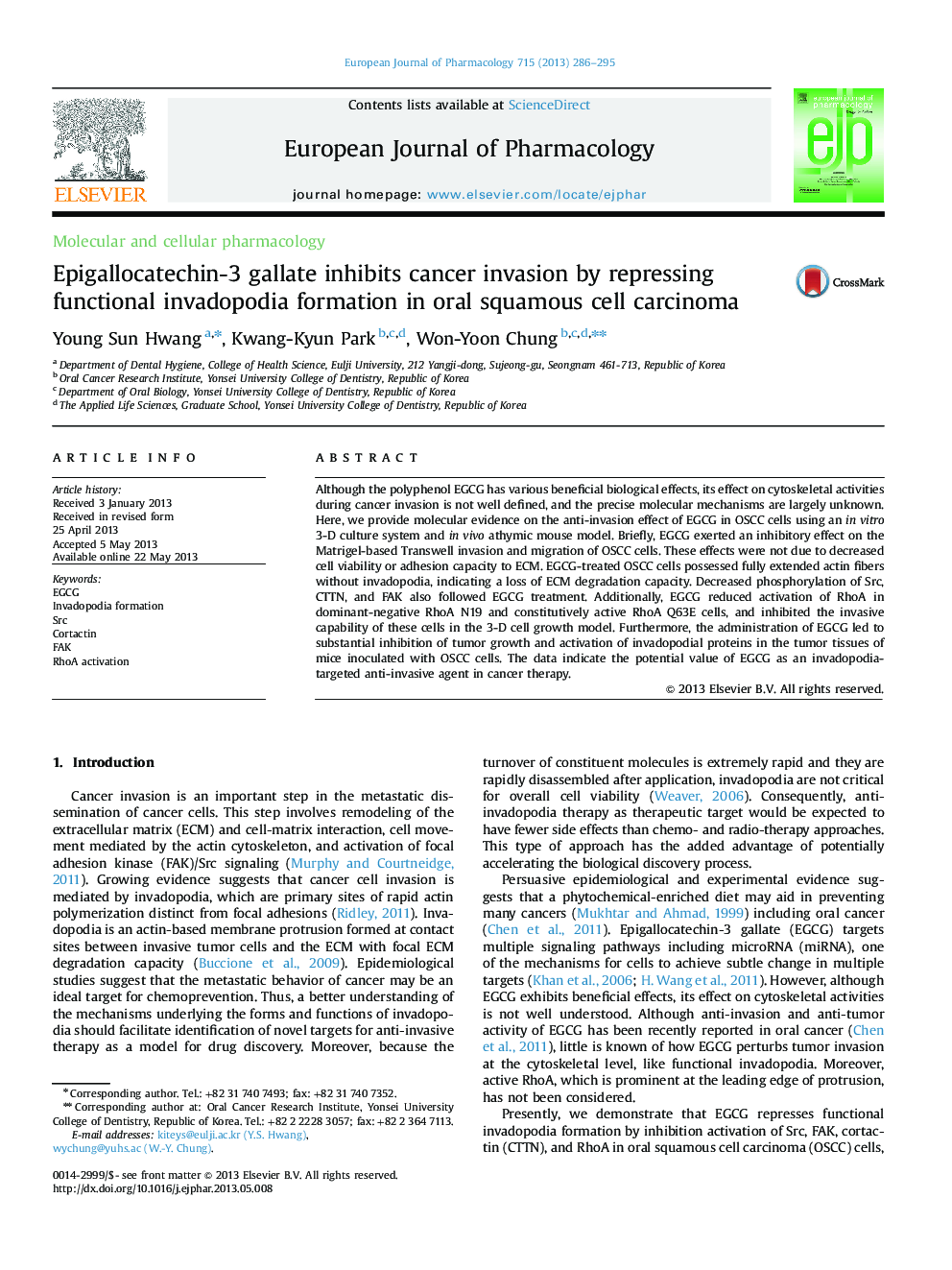| Article ID | Journal | Published Year | Pages | File Type |
|---|---|---|---|---|
| 2532055 | European Journal of Pharmacology | 2013 | 10 Pages |
Although the polyphenol EGCG has various beneficial biological effects, its effect on cytoskeletal activities during cancer invasion is not well defined, and the precise molecular mechanisms are largely unknown. Here, we provide molecular evidence on the anti-invasion effect of EGCG in OSCC cells using an in vitro 3-D culture system and in vivo athymic mouse model. Briefly, EGCG exerted an inhibitory effect on the Matrigel-based Transwell invasion and migration of OSCC cells. These effects were not due to decreased cell viability or adhesion capacity to ECM. EGCG-treated OSCC cells possessed fully extended actin fibers without invadopodia, indicating a loss of ECM degradation capacity. Decreased phosphorylation of Src, CTTN, and FAK also followed EGCG treatment. Additionally, EGCG reduced activation of RhoA in dominant-negative RhoA N19 and constitutively active RhoA Q63E cells, and inhibited the invasive capability of these cells in the 3-D cell growth model. Furthermore, the administration of EGCG led to substantial inhibition of tumor growth and activation of invadopodial proteins in the tumor tissues of mice inoculated with OSCC cells. The data indicate the potential value of EGCG as an invadopodia-targeted anti-invasive agent in cancer therapy.
